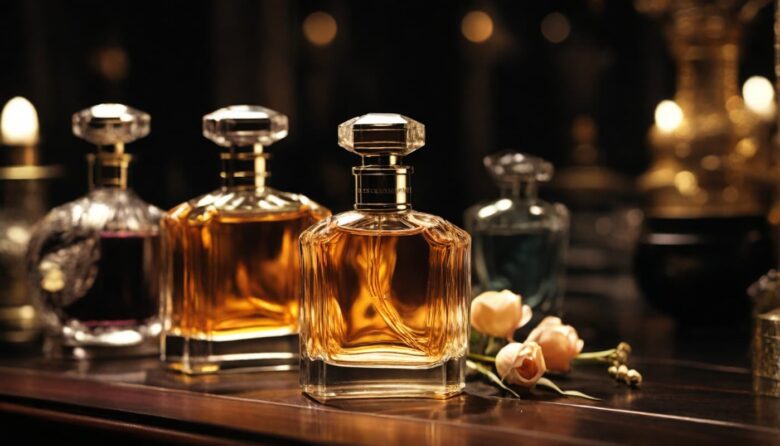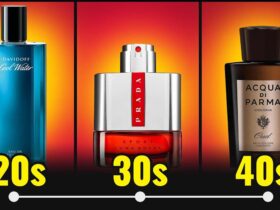Choosing a signature scent is more than just picking a fragrance you like; it’s about finding a perfume that captures the essence of who you are and enhances your natural aura. Your signature scent can serve as a personal statement, a way to express your mood, style, and personality without saying a word. Here’s how you can navigate the complex world of perfumes to find the one that truly resonates with your individuality.
Understanding Fragrance Notes
Before diving into the selection process, it’s crucial to understand the basic structure of perfumes which is built around three types of notes: top, middle, and base notes.
- Top notes are the initial, lighter smells that are noticeable immediately upon application of the perfume. Common top notes include citrus (lemon, grapefruit), light fruits (apple, berries) and herbs (lavender, sage).
- Middle notes, also known as heart notes, emerge just before the top notes dissipate. They are considered the heart of the perfume and are usually more mellow and rounded. These often include heavier floral scents (rose, jasmine, ylang-ylang) or spices (cinnamon, cardamom).
- Base notes are the final fragrance notes that appear once the top notes are completely evaporated. These give the perfume its depth and are usually richer and longer lasting. Common base notes include sandalwood, musk, amber, and patchouli.
Understanding these notes will help you identify which fragrances you are drawn to and what works best with your natural body scent.
Reflecting Your Personality
Your perfume can say a lot about you and can even influence the way people perceive you. Here are some tips to choose a fragrance based on different personality traits:
- For the Bold and Confident: If you have a bold personality, look for strong and powerful scents. Oriental fragrances with notes of musk, vanilla, and exotic flowers can be a great choice. These scents are assertive without being overpowering.
- For the Romantic and Dreamy: Floral scents are perfect for someone who is romantic and loves to daydream. Look for perfumes with notes of rose, peony, or lily, which are soft, feminine, and subtly sweet.
- For the Sporty and Energetic: Fresh and invigorating scents work well for individuals who are sporty and love the outdoors. Citrus-based fragrances or those with aquatic notes can evoke a sense of freshness and energy.
- For the Mysterious and Introspective: Woody and spicy scents suit those with a more mysterious aura. Ingredients like sandalwood, amber, or incense can add an element of intrigue and depth to your perfume choice.
Testing the Fragrance
When testing perfumes, don’t rush the process. Spray a small amount on your wrist and let it sit for a few hours to see how it evolves with your body chemistry. This will give you a sense of how the perfume changes from the initial top notes to the deeper base notes. Remember, a fragrance can smell differently on different people; it’s essential to see how it smells on you and not just on a paper strip or another person.
Consider the Occasion
While your signature scent should ideally suit all occasions, you might want to consider having more than one signature scent: one for everyday use and another for special occasions. For daily wear, you might choose something lighter and more subdued, whereas for a special event, you might opt for something a bit more bold and noticeable.
Longevity and Sillage
Consider the longevity of the perfume, which is how long the fragrance lasts, and the sillage, which refers to how far the scent travels. These factors are crucial in determining how often you’ll need to reapply the perfume and how impactful your fragrance will be in different settings.
- Longevity: Typically, eau de parfum formulations last longer than eau de toilette due to a higher concentration of fragrance oils. If you need a scent that lasts from morning till evening, opting for an eau de parfum might be beneficial. However, remember that the longevity also depends on the scent composition and how it interacts with your skin.
- Sillage: This is the trail left by the perfume as you move. A fragrance with a heavy sillage will announce your presence and linger after you leave, which can be desirable in a formal setting or a night out. Conversely, a lighter sillage is appropriate for close-quarters or professional environments where a subtler scent is preferable.
Layering Scents
For those who love a bit of complexity and uniqueness in their fragrance, layering different perfumes can create a personalized scent that is uniquely yours. This involves combining two or more fragrances to enhance different notes or to create a balanced scent that captures all facets of your personality. When layering scents, start with the heavier, base-note-heavy fragrance and add lighter scents on top to ensure a harmonious blend that won’t become overwhelming.
Seasonal and Environmental Considerations
The environment and season can significantly influence how a perfume reacts. Warmer climates and seasons can intensify fragrances, making heavier, richer scents potentially overpowering. Lighter scents, such as florals and citruses, are generally more suitable for spring and summer, while spicy and woody scents may be more appropriate for fall and winter.
Personal Connection
Ultimately, the most important aspect of choosing a signature scent is your personal connection to the fragrance. It should evoke positive feelings and memories, resonate with your self-image, and feel comfortable as a second skin. Sometimes, this connection is instantaneous; other times, it develops as you wear the scent more frequently.
Sampling and Exploration
Given the subjective nature of fragrance, it’s wise to explore a wide range of scents to truly understand what appeals to you most. Many department stores and boutiques offer samples or small vials for purchase, allowing you to try the perfume over several days or weeks. Subscription-based services also provide a way to explore multiple fragrances at a relatively low cost, making it easier to find your perfect match without committing to a full bottle.








Leave a Reply